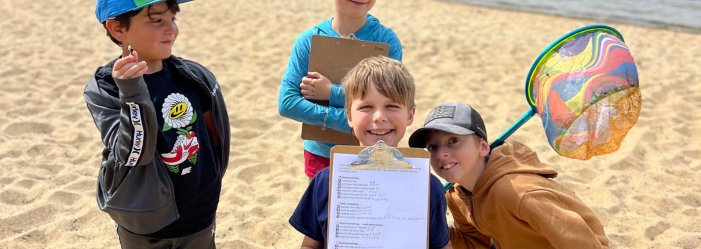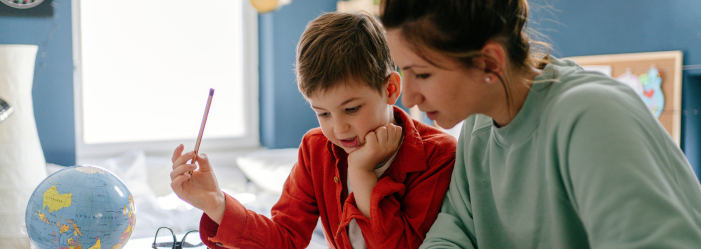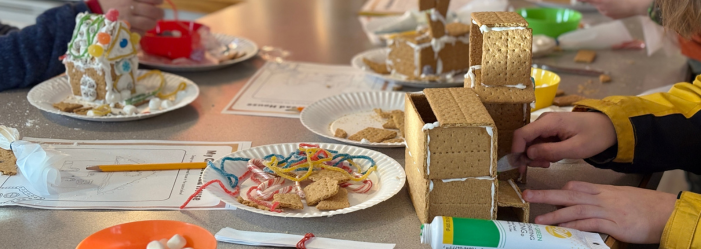The Power of Self-Advocacy
The Power of Self-Advocacy

A big part of becoming a successful, independent member of society is being able to advocate for oneself. We all need to know our own worth, and we need to feel confident enough to speak up for what we need in life.
This is hard for lots of people - adults included - so it makes sense that we teach our children the skills from an early age and continue practicing with them until they can confidently communicate with those around them.
What can you do as a parent? Plenty!
A note about learning differences
Self-advocacy is a critical skill for all children, but it is especially important for children with diagnosed learning differences. We believe they are just that - differences, not deficits. We also believe that talking to our children about their differences, even at a young age, is empowering.
For example, if your daughter is diagnosed with ADHD, you may choose to discuss that with her. Let her know that she learns differently than many of her peers and what those differences look like. She may find it challenging to concentrate on some tasks, but be able to feel hyper focused on others. With time and practice, she will figure out a variety of strategies to help her concentrate when it’s hard.
The important thing is being transparent with your child and letting them know that their differences should be celebrated. With anything that brings struggle, there is also a side that brings strength. The work lies within understanding oneself, recognizing our needs, and being assertive enough to speak up and ask for them.
Giving children language
Self-advocacy should start when children are young, and the strong emotions little ones feel provide the perfect opportunity for learning. Help your child name what they are experiencing, and suggest what they might do about it.
“You are feeling angry because it’s time to leave the park. Maybe asking for a hug could help you feel better.”
“Putting on your coat is making you feel frustrated. Would you like to ask for help? I could show you a trick to make it easier.”
This language-giving work will continue as your child gets older. Sometimes you might talk about advocacy in their home life, or you might help give them language they need to address a problem at school. Before they head off to talk to their teacher, help them consider the following:
- What challenge are they facing?
- What do they need to be successful?
- What could they say to an adult that would convey both?
Practice together
It can be hard to speak up at any age. Even in an environment that values everyone’s voice, sometimes we stay quiet because we don’t want to cause any trouble. It’s helpful for children to understand that their needs are valid (and it might help to differentiate these with wants). Adults don’t always know what’s going on in a child’s mind, and they welcome the feedback.
One fun way to practice is to role play. You pretend to be the teacher while your child works through what to say.
“I don’t understand prepositions. Could you please give me the lesson again?”
“I feel like this math is too easy for me. What can I do to move on to something more challenging?”
“I’m having a hard time focusing when I sit next to my friend, but I don’t want to hurt his feelings. Can you give me any ideas on what to do?”
Teachers love it when children speak up for themselves. It shows that the child really cares about their learning, and it’s beautiful to see a child feeling empowered and confident.
Sometimes children have a different view of their own mastery and academic needs than their guide has observed. It’s a good idea to encourage children to be open-minded and understand that they may not always get what they are hoping for.
Resist the urge to come to the rescue (to a point)
Here it is again. Yet another circumstance in which we want to help our kids out (of course!). When your child is struggling in math, it’s a natural reaction to write a quick email to the teacher and let them know/ask them what can be done.
Whenever possible, we encourage you to encourage your child to take the lead.
Go through the steps we mentioned above, send your child off to school to resolve the issue independently, then ask them how it went. Chances are, change has already begun! But if not, and if you are concerned about a serious issue, by all means reach out. As with everything else in parenting, it’s all about the gradual release of independence.
We can teach our children to speak for themselves, but we can’t expect them to be proficient all at once. That takes time. Give them the information, guide them to feel they can do it, allow them to execute their plan, but then let them lean on you if it doesn’t go as expected.
It’s a delicate balance.
We hope this article was helpful! As always, please reach out with any questions or ideas.













